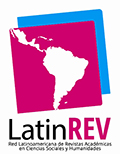Access to Audio-Visual Communication Services
Abstract
The human right to communication is enshrined in several international human rights treaties. This right gives every person the possibility to express, receive, disseminate and investigate information, ideas and opinions. However, communication barriers make audiovisual media services inaccessible to people with disabilities and elderly people. Consequently, they prevent the exercise of other human rights. That is why, in order to assure the universal recognition of the human right to communication universal, it is necessary to train communicators, journalists, operators and the society as a whole. Mainly, educators in the tertiary and university areas should be taught with the porpoise of giving rise to the implementation of the Art. 66 of Law 26,522 of the Audiovisual Communication Service, which establishes accessibility to radio and television.
It is essential to count on with an active participation of people with disabilities and elderly persons in the design and implementation of public policies of audiovisual communication service access, maintaining a strong federal spirit, the same with forge law 26.522.








_(1)_.png)

_(2).png)

